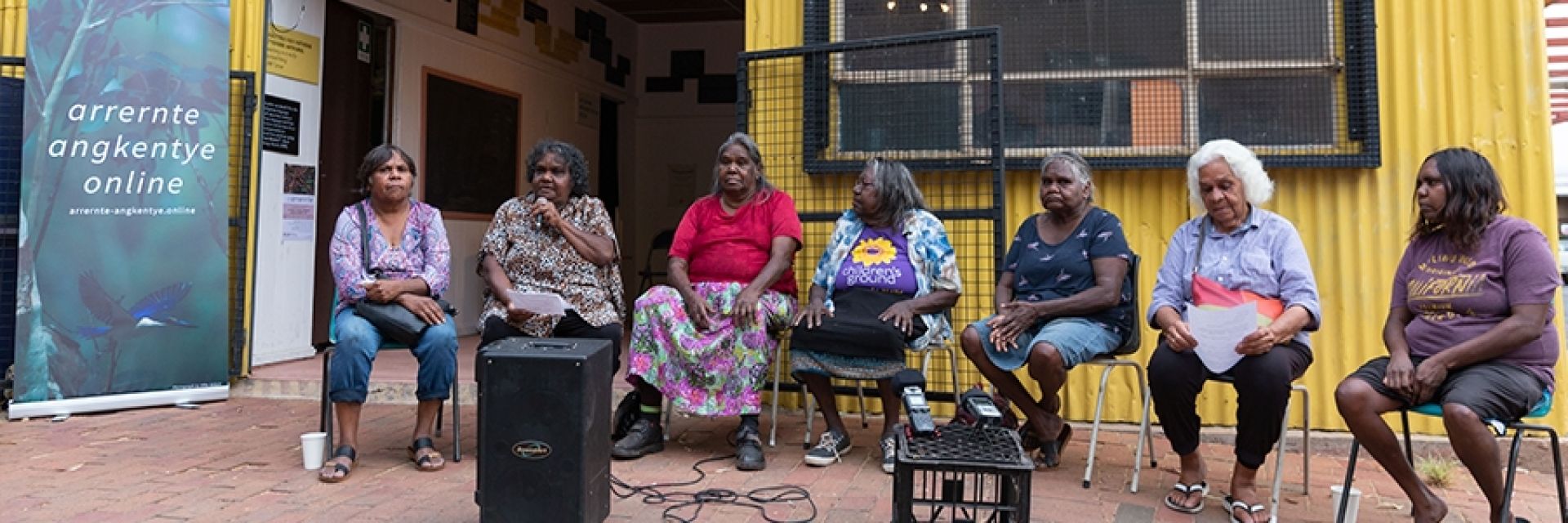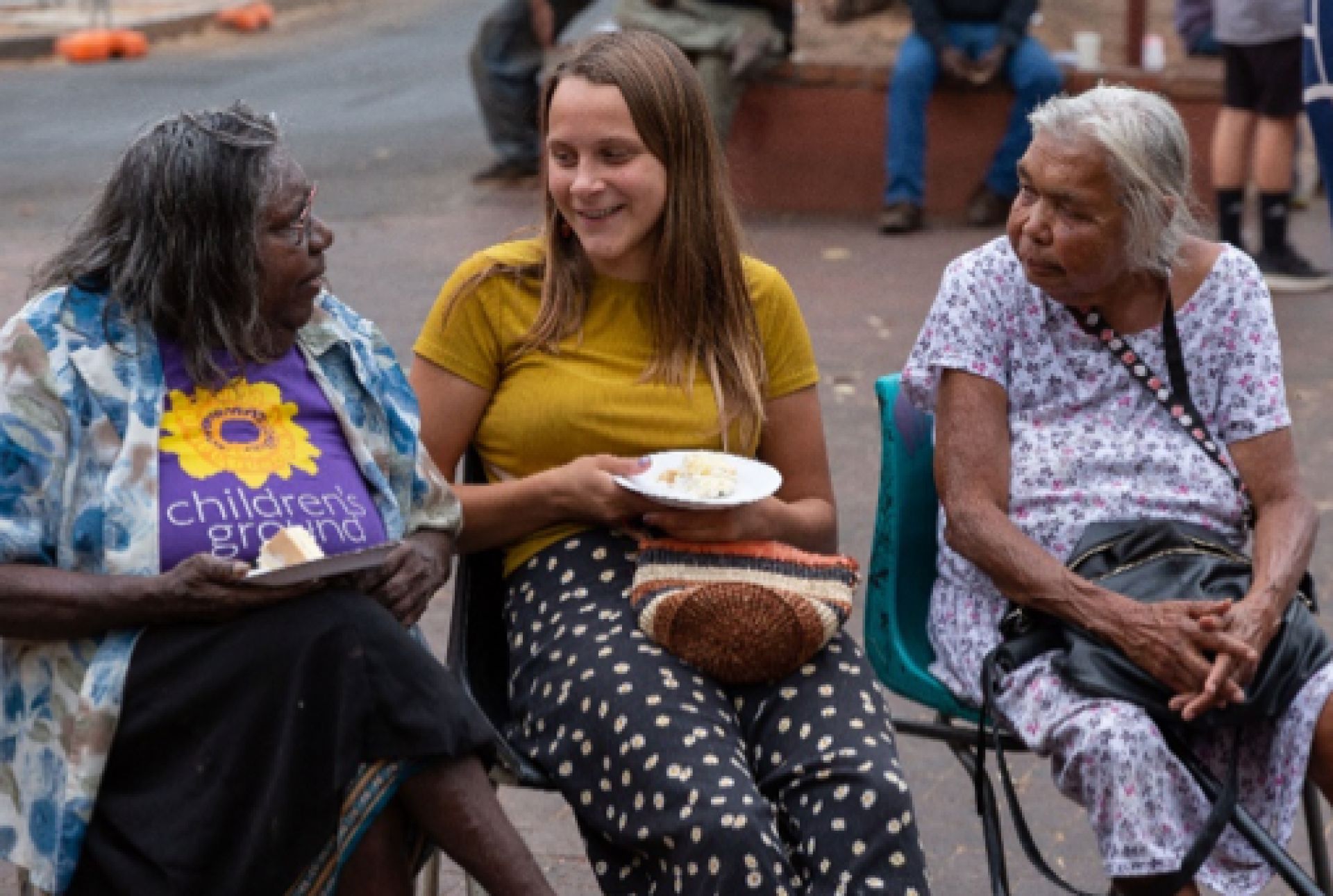

Arrernte-angkentye.online was launched at Apmere Angkentye-kenhe ‘the Place for Language’ in Mparntwe, the heart of Alice Springs, on a lovely evening in front of a relaxed, multi-lingual, multi-cultural crowd in late November 2019. It was one of those events that makes you happy to be a member of this rich community.
The Arrernte Elders and language custodians pictured above shared their thoughts about the importance of language and generously invited the wider world to enjoy the new online resource and to use it to try to learn some Arrernte language. As MK Turner said, “It’s really good for young people today now that it’s online. You don’t have to say, ‘No I can’t learn it because I can’t see it.’ No, now it’s on your phone and you can learn it!” Her daughter Amelia, the MC for the evening, acknowledged the role of Elders past and present, and made a special mention of Christobel Swan, who, she explained, is another one of those Elders “who has always been fighting to preserve language”.

Arrernte-angkentye.online is an Arrernte language resource, the first stage of which is the online version of the revised Eastern and Central Arrernte Learners Wordlist, originally published by IAD in the early 1990s. This version contains audio from a range of Eastern and Central Arrernte speakers, most of whom also contributed to the direction and design of the overall project. This collaborative project has involved the Centre for Australian Languages and Linguistics (CALL) at Batchelor Institute, Institute for Aboriginal Development (IAD), University of Western Australia (UWA), Akeyulerre, Apmere Angkentye-kenhe and Children’s Ground. The project was generously funded by the Newman’s Own Foundation.
Of Australia’s original 300 or more spoken languages, it is estimated that only 13 are now spoken by children.Alice Springs boasts the distinction of being the largest town in Australia where Aboriginal children are still growing up speaking the local language. Alice Springs was also the first urban area in Australia where native title rights were recognised by the Federal Court. Amelia explained that they’ve made this resource for the next generations of Arrernte families.
Although the Arrernte language is relatively strong, it has remained a challenge for people to learn to read and write, and difficult for non-Aboriginal people to learn at all. One reason for this is that the language contains a number of sounds that are not found in English, and not even in some neighbouring Aboriginal languages like Pitjantjatjara and Warlpiri. These sounds can be difficult for beginner learners to pronounce. In order to read Arrernte, you need to learn the letters that Arrernte uses to represent the sounds in the language.
Veronica explained that the Arrernte language community, including Elders from the communities where the languages are spoken and people like us, and linguists, such as Gavan Breen, Jenny Green and John Henderson, had worked together back in the 1990s to work out how the language should be written. Once they had the spelling sorted out, it opened the way for resource production and curriculum development.
Arrernte language programs are currently taught in all Alice Springs schools. Speaking in both Arrernte and English, Carol Turner urged more Arrernte speakers to get involved in teaching the Arrernte programs in the schools. Felicity Hayes, another long-time teacher of Arrernte, spoke about the importance of keeping the language and culture strong and explained that she teaches Arrernte in the schools, “so in the future they can teach it themselves”.
In summary, the final word from Therese Ryder conveyed the overall message, “We’ve been working on this project to give people who want to learn Arrernte the opportunity to learn it more easily, now that it’s online”.
